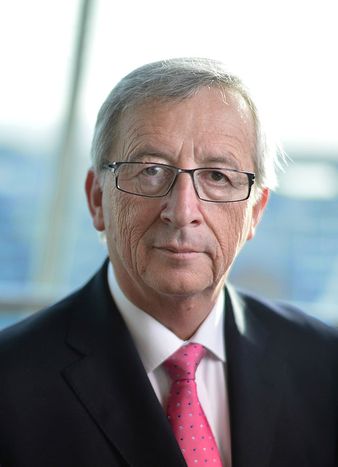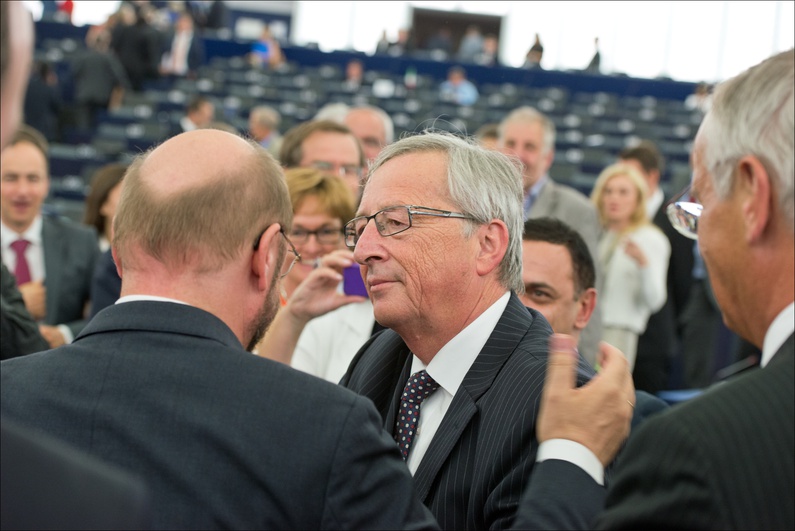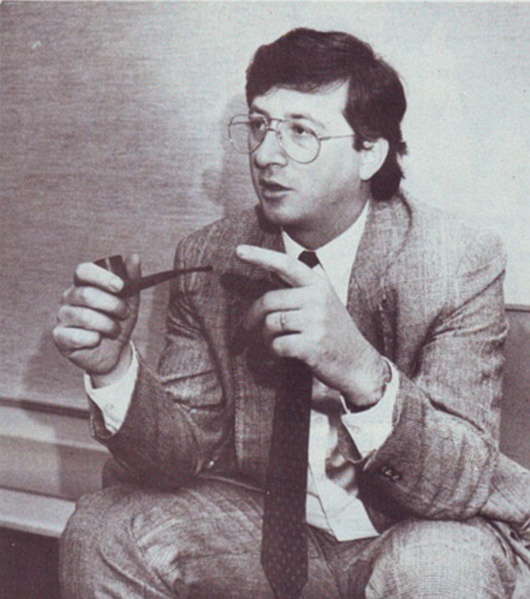
Juncker : portrait of a EU veteran (Part one)
Published on
Translation by:
Emanuel Nevárez PagánJean-Claude Juncker has been elected to Parliament despite a lack of popular support. However, this doesn't necessarily mean that members of the European Parliament have endorsed the man behind the politician. Unbeknownst to most people, and following the footsteps of his predecessors, the Luxembourger deserves to be the lead character of a two-part story.
Less than a month ago, after learning that Juncker has become the newest tenant of Berlaymont, British newspaper The Sun published an article titled : « Six reasons why this is the most dangerous man in Europe ». Across the channel, Jean-Claude Juncker certainly drew the attention of the European media regarding his candidacy as president of the European Commission, fast becoming the target of vicious accusations aimed at tarnishing his image : a fraud, an alcoholic, a smoker, a traitor's son, a conspirator, and even an active member of Bilderberg (a very secretive club exclusively for diplomats, politicians and powerful people, ndlr)... and further nonsense that goes to show just how little is known about Juncker outside the Grand-Duchy of Luxembourg.
An impressive CV
« Power is the best aphrodisiac », assured Henri Kissinger. A subject that would probably not be open for discussion by Jean-Claude Juncker given his long and controversial career. At 59 years old, the Luxembourger has had a career in politics spanning forty years, thirty years in the public eye, and ten years as a major player of European high politics. A mild conservative, a firm believer of europeism, and at the same time a partisan of austerity and a fierce advocate of the greek cause against a vindictive Germany; keeper of financial secrets, and recently, seeking the approval of the minimum salary for Europe, the Luxembourger seems to have become an ideologist, but mostly with a « pragmatic » end, quite accustomed to the treacherous plots that sprout under the cover of darkness, the one thousand miles of distance between Germany and France, and the commitments expected first thing in the morning.
 Following the footsteps of his predecessor, the Portuguese José Manuel Barroso, who was, during the Carnation Revolution in 1974, president of maoist students, Jean-Claude Juncker took his first steps towards the world of politics as a member of a radical left-wing group, the trotskies. « When I was 17 years old, during the rebellion, I was fascinated by the IV International and I tried to explain to my parents that the bourgeois life, in my eyes, didn't represent anything », he stated a couple of years ago to a local newspaper.
Following the footsteps of his predecessor, the Portuguese José Manuel Barroso, who was, during the Carnation Revolution in 1974, president of maoist students, Jean-Claude Juncker took his first steps towards the world of politics as a member of a radical left-wing group, the trotskies. « When I was 17 years old, during the rebellion, I was fascinated by the IV International and I tried to explain to my parents that the bourgeois life, in my eyes, didn't represent anything », he stated a couple of years ago to a local newspaper.
After becoming a member of the Christian Socialist Party (CSV) in 1974, he joined the Luxembourg government when he was 28 years old. He was at that time the Secretary of State Labor and State Security, making him one of the youngest European ministers in history. In 1984, he was elected for the first time to the Chamber of Deputies, named minister of Labor, and appointed minister of Finance. His administration, then under the watchful eye of Jacques Santer - former president of the Commission - had to face the infamous string of bombing incidents - a high-profile case better known as Bomeleeër - that shook the entire nation of Luxembourg between 1984 and 1986, and which mystery still lingers on everyone's mind. In 1995, M. Santer, head of the Commission, was appointed Prime Minister by the grand duke Jean. Nevertheless, he continued to handle the finances of the Ministry of Finance and Labor and, as a result, he is regarded as a craftsman of illicit financial transactions for which the country is often accused.
The survivor of Maastricht
Above all else, regarding his multiple duties as a politician, it must be acknowledge that M. Juncker excels under the enormous pressure of a busy European agenda, an invaluable trait amongst politicians. He is the only person who was present at the ratification ceremony of the Maastricht Treaty in 1992. As one of architects of the treaty, he shared the spotlight with other well known leaders such as François Mitterrand and Helmut Kohl, prompting him to declare : « the euro and I, are the sole survivors of the Treaty of Maastricht ». He may, in a certain way, take pride in having contributed to the realisation of the project : « the man who always gets the job done », according to Le Figaro, was a crucial mediator between Germany, France, and the United Kingdom. He was also the driving force behind the famous « opt-out » treaty clause, which promulgated the principle of legal withdrawal from the EU, burying once and for all the dream of a permanent European unification.
 In 2005, by virtue of his seniority and vast experience, he was catapulted into the presidency of Eurogroup, an institution that gathers the ministers of Finance from the Euro zone, for which he will be continuously reelected, and this, amid the uncertainty of a crisis-stricken Europe that would eventually transform the EU. Consequently, according to him, he has taken part in at least 120 European summits throughout his career.
In 2005, by virtue of his seniority and vast experience, he was catapulted into the presidency of Eurogroup, an institution that gathers the ministers of Finance from the Euro zone, for which he will be continuously reelected, and this, amid the uncertainty of a crisis-stricken Europe that would eventually transform the EU. Consequently, according to him, he has taken part in at least 120 European summits throughout his career.
A few years later, in 2013, Juncker's career seemed to have taken a turn for the worse. His position as head of Eurogroup was near its end, and the Luxembourger relinquished his seat to the Dutch Jeroen Dijsselbloem. Soon after, on July 11 2013, after an 18 year reign, he resigned as head of State, followed by a notorious espionage scandal involving citizens of the Grand Duchy and Juncker's secret services.
Nonetheless, a year later, on July 15, as the main candidate for the European Popular Party, the biggest party in the European Parliament, he was elected as the successor of José Manuel Barroso. A new chapter of Juncker's long political life, and the EU history as well, may be written. But beyond the seasoned statesman, who is Jean-Claude Juncker ?
Jean-Claude Juncker facing Marine Le Pen at the European Parliament yesterday during his election.
Coming soon, the second part of this article dedicated to Jean-Claude Juncker.
Translated from Juncker : Jean-claude dure (1ère partie)



